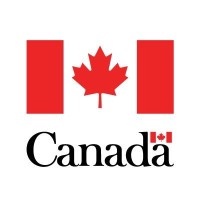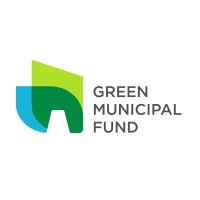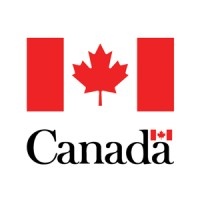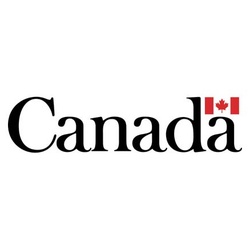
Clean Energy for Rural and Remote Communities (CERRC)
At a glance
- No Condition
- Open Date : December 1, 2023
- Utilities
- Canada
- Non-profit
- Public or Parapublic institution
- For-profit business
- All revenue ranges
- All organization sizes
- Indigenous Peoples
- Rural or Northern Residents
- Research
- Environment
- Economic, Social and Community Development
- Indigenous peoples
- Rural / Remote communities
- All structures
- Local
- Regional
- National
Overview
Get financial support for your project that will help reduce the use of fossil fuels for heating and electricity by increasing the use of clean energy in remote and rural communities.
Activities funded
The Clean Energy for Rural and Remote Communities Program aims to support projects that enhance energy sustainability and reduce fossil fuel reliance in rural and remote areas. Eligible projects emphasize the deployment of efficient and renewable energy systems and community-based energy solutions.
- Biomass heating projects for local energy generation.
- District heating systems using renewable sources.
- Combined heat and power systems integrating green technologies.
- Research, development, and demonstration of innovative clean energy solutions.
Eligibility
Eligibility for the Clean Energy for Rural and Remote Communities program is dependent on specific criteria related to the applicant and project location.
- The applicant must be part of or work with Indigenous, rural, or remote communities in Canada.
- The community must be either rural or remote as defined by the program criteria.
- The project must focus on clean energy solutions, including biomass heating, district heating, or combined heat and power systems.
- The project should aim to reduce reliance on fossil fuels and lower greenhouse gas emissions.
Who is eligible?
The Clean Energy for Rural and Remote Communities (CERRC) program is aimed primarily at Indigenous communities, rural communities, and remote communities within Canada. Projects that involve partnerships between these communities and other entities such as municipalities, non-profit organizations, or private sector companies may also be eligible. The program encourages projects that support the transition to clean energy with a focus on reducing greenhouse gas emissions and reliance on fossil fuels through the use of local renewable energy sources and energy efficiency measures.Eligible expenses
Eligible expenses for the Clean Energy for Rural and Remote Communities Program may include, but are not limited to:
- Costs associated with implementing biomass heating, district heating, and combined heat and power systems
- Research, development, and demonstration project expenses
- Community capacity building initiatives
- Deployment of renewable energy projects
- Energy efficiency measures
- Consultation and engagement with Indigenous, rural, and remote communities
Eligible geographic areas
This grant aims to support Indigenous, rural, and remote communities across Canada in reducing reliance on fossil fuels. The eligible geographical areas include specific communities defined by their connection to energy networks and population criteria.
- Indigenous communities throughout Canada.
- Rural communities connected to the North American electrical grid but not to the piped natural gas network, with fewer than 5,000 people and low population density.
- Remote communities not connected to the North American electrical grid or piped natural gas network, including Northern Remote Communities.
Selection criteria
The evaluation and selection criteria for this grant are:
- Alignment with program objectives and priorities
- Feasibility and sustainability of the project
- Community engagement and support
- Demonstrated benefits to the community
- Capacity building and knowledge transfer
- Financial viability and budget justification
How to apply
Contact Form Submission
- Submit a contact form through the provided link to discuss your project and check the most suitable stream.
- Indicate your community vision, idea, or project details.
- Await contact from the program representatives to guide you through the next steps.
Application Request
- If required, request an application by email to officially begin your application process.
- Ensure to state your project clearly to confirm its eligibility.
Ongoing Basis Review
- Note that applications are reviewed on an ongoing basis, subject to fund availability.
- Keep informed about the status of your application through regular communication with program representatives.
Additional information
There is no additional information mentioned for this grant.
Frequently Asked Questions about the Clean Energy for Rural and Remote Communities (CERRC) Program
What is the Clean Energy for Rural and Remote Communities (CERRC)?
Who is eligible for the Clean Energy for Rural and Remote Communities (CERRC) program?
What expenses are eligible under Clean Energy for Rural and Remote Communities (CERRC)?
Who can I contact for more information about the Clean Energy for Rural and Remote Communities (CERRC)?
Where is the Clean Energy for Rural and Remote Communities (CERRC) available?
Is the Clean Energy for Rural and Remote Communities (CERRC) a grant, loan, or tax credit?
Who are the financial supporters of the Clean Energy for Rural and Remote Communities (CERRC)?
More programs like this

NRC IRAP – Support for clean technology
National Research Council Canada (NRC)
Artificial Intelligence for Canadian Energy Innovation
Natural Resources Canada (NRCan)
Capital project: Community Energy Systems
Green Municipal Fund (GMF)
Indigenous and Stakeholder Capacity Fund - Indigenous Capacity Support
Canadian Nuclear Safety Commission (CNSC)
Indigenous and Stakeholder Capacity Fund - Regulatory Policy Dialogue
Canadian Nuclear Safety Commission (CNSC)
Indigenous and Stakeholder Capacity Fund - Engagement and Collaboration Support
Canadian Nuclear Safety Commission (CNSC)
On-road Transportation Decarbonization — Demonstration Projects
Natural Resources Canada (NRCan)
iVisit
National Research Council Canada (NRC)
Critical Minerals Infrastructure Fund – Shovel ready Stream
Government of Canada